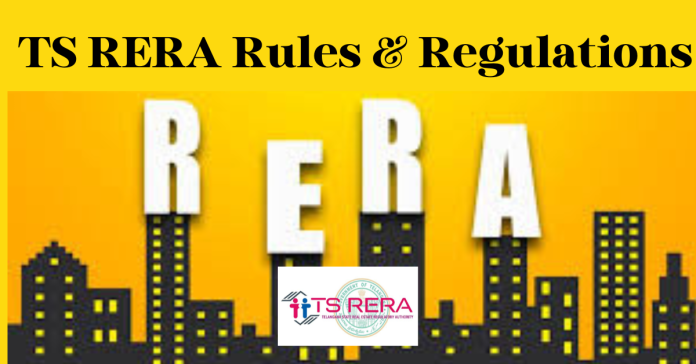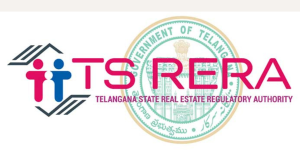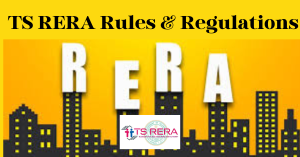The real estate sector in India has witnessed significant transformation since the introduction of the Real Estate (Regulation and Development) Act, of 2016, commonly known as RERA. This landmark legislation was enacted to address widespread issues such as delays in project completion, lack of transparency, and consumer grievances in real estate transactions. In Telangana, the state-specific implementation of this act, known as TS RERA, plays a pivotal role in regulating the real estate market.
In this article, we will explore the key aspects of TS RERA, its rules and regulations, and its impact on various stakeholders, including homebuyers, developers, and real estate agents.
What is TS RERA?
TS RERA stands for Telangana Real Estate Regulatory Authority. It was established to oversee and regulate the real estate sector in Telangana, ensuring that the interests of homebuyers are protected and that real estate transactions are conducted in a transparent and accountable manner. TS RERA is responsible for implementing the provisions of the Real Estate (Regulation and Development) Act, 2016, at the state level.
Key Objectives of TS RERA
The primary objectives of TS RERA include:
- Ensuring Transparency: Mandating clear and accurate disclosures by developers.
- Promoting Accountability: Holding developers responsible for timely project completion and adherence to promised specifications.
- Protecting Consumers: Safeguarding the rights and interests of homebuyers through a robust grievance redressal mechanism.
- Enhancing Efficiency: Streamlining operations and promoting ethical practices in the real estate sector.
Key Provisions of TS RERA Rules and Regulations
1. Mandatory Project Registration
All residential and commercial real estate projects in Telangana with a plot area exceeding 500 square meters or more than eight apartments must be registered with TS RERA before any advertisement or sale. This registration ensures that the project has all necessary approvals and complies with legal requirements.
2. Information Disclosure
Developers are required to disclose comprehensive information about their projects, including:
- Detailed project layout and sanctioned plans.
- Information about the promoter.
- Status of land title and legal encumbrances.
- Details of brokers, contractors, architects, and structural engineers.
- Project completion timeline.
This information must be updated regularly on the TS RERA website, ensuring transparency and allowing buyers to make informed decisions.
3. Escrow Account Requirement
Developers must deposit 70% of the project funds collected from buyers into a separate escrow account. This fund is to be used solely for the construction of the project and land-related costs. This provision prevents the diversion of funds to other projects and protects the financial interests of homebuyers.
4. Compensation for Project Delays
In the event of project delays, developers are obligated to pay interest to homebuyers for every month of delay. The interest rate is typically equivalent to the EMI that buyers pay to their banks. This rule incentivizes timely project completion and holds developers accountable.
5. Grievance Redressal Mechanism
TS RERA provides a robust mechanism for addressing homebuyer grievances. Buyers can file complaints against developers, real estate agents, or brokers for non-compliance with the Act. TS RERA has the authority to take appropriate action, including imposing penalties and awarding compensation.
6. Registration of Real Estate Agents
Real estate agents must also register with TS RERA. This registration ensures that only qualified and accountable professionals participate in real estate transactions. Registered agents are required to adhere to ethical standards and practices, promoting professionalism in the sector.
Impact on Stakeholders
Homebuyers
For homebuyers, TS RERA is a significant step towards securing their investments and ensuring fair treatment in real estate transactions. The mandatory disclosures, escrow account provisions, and grievance redressal mechanisms provide a layer of security and trust. Homebuyers can now make more informed decisions and have legal recourse in case of any discrepancies.
Developers
While TS RERA imposes stricter compliance requirements on developers, it also promotes a more structured and transparent market. Developers who adhere to these rules can build stronger credibility and trust with their customers. The emphasis on timely project completion can enhance the overall reputation of the sector and attract more investment.
Real Estate Agents
The registration and regulation of real estate agents ensure that only qualified professionals operate in the market. This professionalization can enhance the quality of services provided to consumers, leading to a more reliable and efficient real estate market.
Conclusion
TS RERA represents a significant advancement in the regulation of the real estate sector in Telangana. By promoting transparency, accountability, and efficiency, TS RERA protects the interests of homebuyers and fosters a fair and thriving real estate market. As stakeholders adapt to these regulations, the long-term impact is expected to be positive, resulting in a more trustworthy and dynamic real estate environment in Telangana.
With TS RERA in place, the real estate sector in Telangana is poised for a future where consumers can engage in property transactions with greater confidence and developers can operate in a more predictable and transparent regulatory framework.
Frequently Asked Questions (FAQ’s)
Ans: TS RERA was established to ensure transparency, accountability, and efficiency in the real estate sector, protecting the interests of homebuyers and promoting fair practices among developers and agents.
Ans: By mandating detailed disclosures from developers and requiring regular updates, TS RERA ensures that buyers have access to accurate and up-to-date information about projects.
Latest Blogs
- Must-know Factors about the RERA project: Before Buy a Plot?
- TS RERA Registration Process for Real Estate Developers
- TS RERA Rules& Regulations: Guide for Homebuyers& Developers










